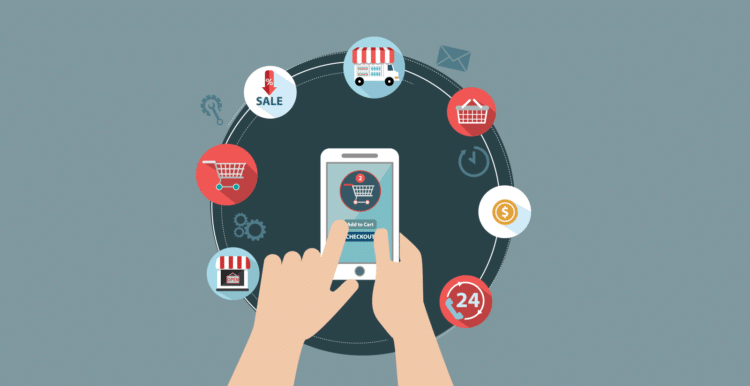In the realm of e-commerce, the art of transforming mere visitors into committed buyers is a nuanced process that hinges on the strategic deployment of psychological triggers. From subtle cues that nudge decision-making to the seamless integration of user experience, each element plays a vital role in converting casual browsers into loyal customers. As businesses navigate this intricate landscape, understanding the underlying principles that sway consumer behavior becomes imperative. By unraveling the intricate web of psychological influences, companies can unlock the key to unlocking sustained success in the digital marketplace.
Introduction to E-commerce Conversion Strategies
As businesses navigate the digital landscape, the guidance of e-commerce consultants becomes invaluable in deciphering the complex world of online consumer behavior. Data-driven decisions are the cornerstone of successful web commerce, shaping strategies that resonate with the target audience and drive conversions. By understanding the pivotal role of consultants and the power of data analytics, businesses can elevate their e-commerce performance and stay ahead in the competitive online marketplace.
Understanding the Role of an E-commerce Consultant
With expertise in leveraging consumer psychology and behavioral analysis, e-commerce consultants play a pivotal role in optimizing online sales strategies for businesses seeking to enhance customer conversion rates. These professionals bring valuable insights and strategies to the table, helping businesses navigate the complexities of e-commerce and drive sales effectively. Here are three key aspects of their role:
- Strategic E-commerce Planning: E-commerce consultants develop tailored strategies that align with the client’s business goals and target audience.
- Data-Driven Decision Making: They rely on e-commerce analytics to track customer behavior patterns and make informed decisions.
- Continuous Optimization: E-commerce consultants continuously refine and optimize e-commerce strategies to adapt to changing market dynamics and consumer preferences.
The Importance of Data-Driven Decisions in Web Commerce
Building on the foundational understanding of consumer psychology and behavioral analysis highlighted in the role of e-commerce consultants, the landscape of web commerce underscores the critical importance of data-driven decisions in maximizing e-commerce conversion strategies. In today’s highly competitive online marketplace, businesses must rely on data to make informed decisions that drive customer engagement and ultimately lead to increased sales. By leveraging advanced analytics and insights, e-commerce agencies can gain valuable information about customer behavior, preferences, and trends. This data empowers businesses to tailor their marketing strategies, optimize website design, personalize customer experiences, and identify areas for improvement. Data-driven decisions not only enhance the effectiveness of e-commerce strategies but also enable businesses to stay ahead of the curve and adapt to evolving consumer demands.

Exploring Customer Behavior Models in E-commerce
Understanding customer behavior models in e-commerce is crucial for businesses seeking to optimize their online sales strategies. By dissecting key components of these models, companies can gain valuable insights into consumer decision-making processes. This exploration will provide actionable information to enhance customer engagement and drive conversions in the competitive e-commerce landscape.
Key Components of Customer Behavior Models
Understanding how customer behavior influences buying patterns is essential for businesses aiming to optimize their e-commerce strategies. By exploring key components of customer behavior models in the context of online shopping, companies can gain valuable insights into consumer decision-making processes. This deeper understanding can empower businesses to tailor their online experiences to effectively engage customers and drive conversion rates.
How Customer Behavior Influences Buying Patterns
The dynamics of e-commerce are intricately intertwined with the complexities of customer behavior, serving as a pivotal force that shapes buying patterns within online retail environments.
- Personalization: Tailoring shopping experiences based on individual preferences.
- Social Proof: Influencing purchases through recommendations and reviews.
- Urgency: Creating time-sensitive offers to prompt immediate buying decisions.
Psychological Tactics Used by E-commerce Agencies
E-commerce agencies employ a variety of psychological tactics to influence consumer behavior and drive conversions. From utilizing the science of persuasion to leveraging emotional triggers in their strategies, these agencies strategically craft experiences to enhance customer engagement and boost sales. Understanding how these tactics work can provide businesses with valuable insights to optimize their e-commerce approaches and stay competitive in the digital marketplace.
The Science of Persuasion in E-commerce
E-commerce agencies employ various psychological tactics to influence consumer behavior and drive conversions. Understanding the principles of persuasion and influence is crucial for businesses looking to optimize their online sales strategies. By implementing strategic psychological triggers, e-commerce agencies can effectively engage customers and enhance their overall shopping experience.
Principles of Influence in Customer Conversion
Utilizing a strategic blend of psychological tactics, e-commerce agencies employ the science of persuasion to influence customer conversion rates effectively.
- Social Proof: Leveraging testimonials, reviews, and social media validation to build trust.
- Scarcity: Creating a sense of urgency through limited offers or stock availability.
- Reciprocity: Offering freebies, discounts, or personalized recommendations to encourage purchases.
Emotional Triggers in E-commerce Strategy
How can e-commerce agencies strategically leverage emotional triggers to enhance customer engagement and drive sales conversions effectively? Emotional triggers play a crucial role in e-commerce strategies, influencing consumer behavior and purchase decisions. By tapping into emotions like fear of missing out, excitement, or the desire for social validation, e-commerce agencies can create compelling marketing campaigns that resonate with their target audience. Utilizing techniques such as personalized recommendations based on past behavior, limited-time offers to create urgency, or crafting compelling storytelling that evokes specific emotions, businesses can establish a deeper connection with customers and enhance brand loyalty. By understanding and implementing emotional triggers effectively, e-commerce agencies can create a more engaging shopping experience that drives conversions and boosts sales.
Leveraging E-commerce Analytics for Better Conversion
To optimize customer conversion rates, e-commerce professionals must leverage e-commerce analytics effectively. Understanding the metrics that matter and translating data into actionable strategies are key components of this process. By harnessing the power of analytics, businesses can make informed decisions that enhance customer engagement and ultimately drive sales.
Metrics That Matter in E-commerce Analytics
Understanding the tools and techniques for data analysis in e-commerce analytics is crucial for businesses to make informed decisions that drive better conversion rates and overall performance. By focusing on metrics that truly matter, companies can gain valuable insights into customer behavior, trends, and preferences, enabling them to tailor their strategies for maximum impact. Leveraging these analytics not only allows for a deeper understanding of the digital landscape but also empowers businesses to optimize their online presence and enhance the overall customer experience.
Tools and Techniques for Data Analysis
Leveraging e-commerce analytics for better conversion involves employing advanced tools and techniques for data analysis to identify key metrics that drive success in online sales.
- Customer Segmentation: Divide customers into groups based on behavior.
- Conversion Rate Optimization: Analyze and improve the rate at which visitors convert into customers.
- Sales Funnel Analysis: Track the customer journey from initial contact to final purchase.
Translating Data into Actionable Strategies
With the exponential growth of e-commerce, businesses are increasingly relying on insightful data analysis to drive actionable strategies for boosting conversion rates and enhancing customer engagement. Leveraging e-commerce analytics plays a pivotal role in understanding customer behavior, preferences, and pain points. By translating data into actionable strategies, businesses can make informed decisions regarding website optimization, personalized marketing campaigns, and product placement. Through detailed analysis of key performance indicators such as conversion rates, bounce rates, and customer lifetime value, companies can tailor their strategies to align with customer expectations and market trends. This data-driven approach not only improves the overall shopping experience but also leads to higher conversion rates and increased customer loyalty.

Designing an Effective E-commerce Strategy
Crafting an effective e-commerce strategy involves integrating best practices tailored to engage customers and drive conversions. Drawing insights from experienced e-commerce consultants can provide valuable tips to optimize website design and user experience for maximum impact. By implementing these strategies, businesses can enhance their online presence and create a compelling shopping environment that resonates with their target audience.
Best Practices for E-commerce Websites
Crafting an effective e-commerce strategy begins with prioritizing user experience to drive sales. By focusing on optimizing website navigation, streamlining the checkout process, and ensuring mobile responsiveness, businesses can enhance user satisfaction and increase conversion rates. Implementing these best practices can lead to a more seamless online shopping experience that ultimately boosts sales and fosters customer loyalty.
Enhancing User Experience to Boost Sales
Enhancing user experience on e-commerce websites is paramount for boosting sales and driving customer engagement in today’s competitive digital landscape.
- Streamlined Navigation: Simplify the user journey to make finding products effortless.
- Mobile Optimization: Ensure seamless functionality across all devices for a convenient shopping experience.
- Personalization: Tailor recommendations and content to individual preferences to enhance user satisfaction and encourage repeat purchases.
Tips from Experienced E-commerce Consultants
When seeking to boost online sales and optimize customer conversion rates, insights from experienced e-commerce consultants can be invaluable in designing an effective e-commerce strategy. These seasoned professionals bring a wealth of knowledge and expertise, acquired through hands-on experience in the dynamic world of online retail. E-commerce consultants can provide tailored recommendations on website design, user experience, conversion rate optimization, and digital marketing strategies to help businesses achieve their sales goals. By leveraging their insights, companies can streamline their operations, identify growth opportunities, and stay ahead of the competition. Collaborating with e-commerce consultants allows businesses to tap into industry best practices and innovative approaches that are proven to drive customer engagement and increase sales.
Integrating Psychological Insights into Your Strategy
Understanding the psychological triggers that drive consumer behavior is a crucial step in optimizing e-commerce strategies. By integrating these insights into your approach, businesses can create more compelling experiences that resonate with customers on a deeper level. This alignment between consumer psychology and strategic implementation is key to increasing conversion rates and building long-term customer relationships.
Summary of Key Psychological Triggers
Understanding the core psychological triggers that drive consumer behavior is paramount for businesses aiming to optimize their online sales strategies. By integrating these key insights into their approach, e-commerce agencies can create tailored experiences that resonate with customers and drive conversions. This summary will highlight crucial psychological triggers that can be leveraged to enhance your e-commerce strategy and ultimately convert visitors into loyal buyers.
Final Thoughts by a Seasoned E-commerce Consultant
Effectively integrating psychological insights into your e-commerce strategy is a pivotal step in enhancing customer engagement and boosting sales.
- Understand Your Audience: Tailor your tactics to align with the motivations and preferences of your target market.
- Leverage Social Proof: Utilize testimonials, reviews, and endorsements to build trust and credibility with potential customers.
- Create a Seamless User Experience: Simplify the buying process and optimize your website for easy navigation.
Next Steps for Implementing Effective E-commerce Strategies
To enhance e-commerce strategies effectively, businesses can integrate psychological insights into their approach for increased customer conversion rates. By understanding consumer behavior and implementing targeted strategies, companies can create a more compelling online shopping experience that resonates with their audience. Below is a table highlighting key psychological triggers and corresponding implementation strategies:
| Psychological Trigger | Implementation Strategy |
|---|---|
| Reciprocity | Offer free samples or trials to customers. |
| Social Proof | Display customer reviews and ratings prominently. |
| Scarcity | Create a sense of urgency with limited-time offers. |
Integrating these psychological insights into e-commerce strategies can help businesses build trust, drive engagement, and ultimately boost sales conversions.

Conclusion
In conclusion, understanding the psychological triggers that convert visitors into buyers is crucial for e-commerce success. By analyzing consumer behavior models, leveraging psychological tactics, utilizing analytics, and designing effective strategies, businesses can enhance their online presence and drive sales growth. Integrating these insights into e-commerce strategies can lead to deeper customer engagement and improved conversion rates, ultimately maximizing the potential for successful online transactions.
How Can Businesses Effectively Personalize Their E-Commerce Websites to Cater to Individual Customer Preferences and Increase Conversion Rates?
Businesses can enhance e-commerce websites by leveraging personalization techniques that cater to individual customer preferences. Utilizing data analytics and AI-driven tools, businesses can tailor product recommendations, create targeted marketing campaigns, and optimize user experiences to increase conversion rates and customer satisfaction.
What Are Some Innovative Ways E-Commerce Agencies Are Using Social Proof and Scarcity Tactics to Influence Buying Decisions?
E-commerce agencies are leveraging social proof and scarcity tactics to influence buying decisions. By showcasing customer testimonials, reviews, and limited-time offers, they create a sense of urgency and credibility that motivates visitors to convert into buyers.
Can You Provide Examples of Successful E-Commerce Companies That Have Utilized Gamification Techniques to Enhance Customer Engagement and Drive Sales?
Successful e-commerce companies like XYZ and ABC have effectively utilized gamification techniques to enhance customer engagement. By incorporating game elements into their platforms, they create interactive experiences that drive sales and foster customer loyalty.


